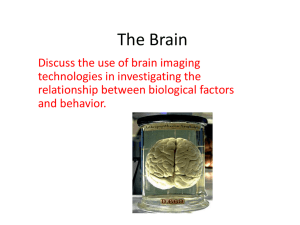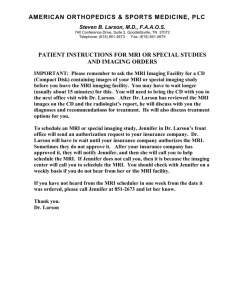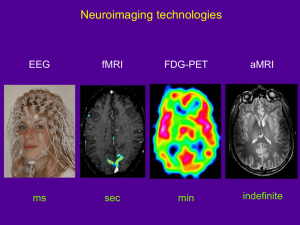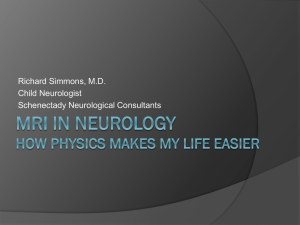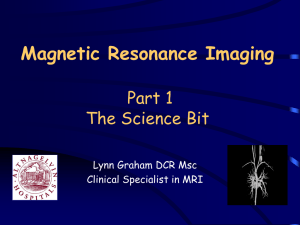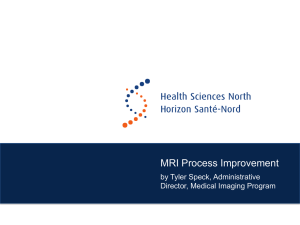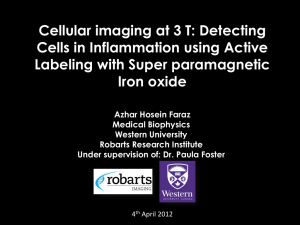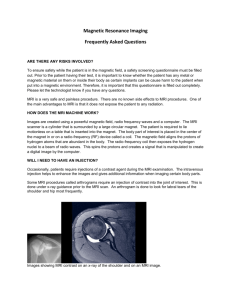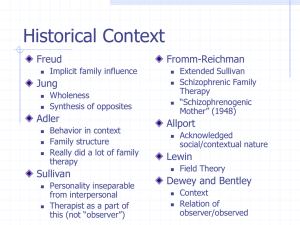What can MRI do for ataxias
advertisement
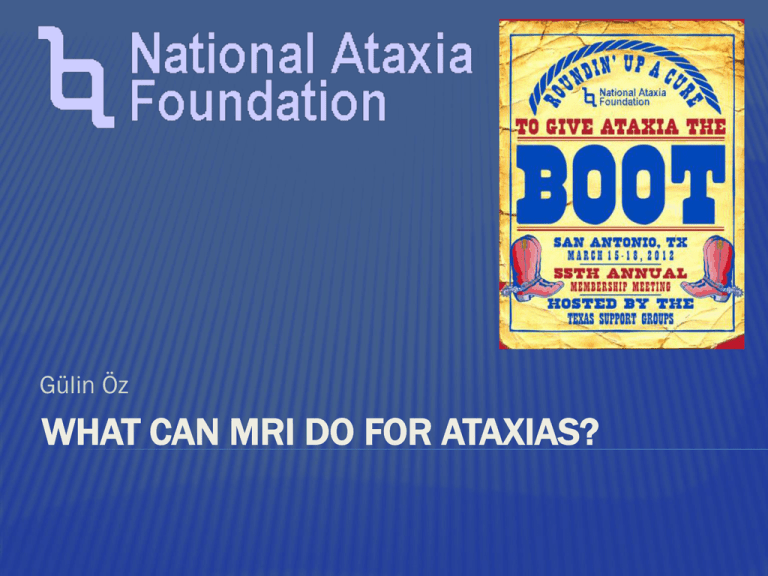
Gülin Öz WHAT CAN MRI DO FOR ATAXIAS? DISCLAIMER The information provided by speakers in any presentation made as part of the 2012 NAF Annual Membership Meeting is for informational use only. NAF encourages all attendees to consult with their primary care provider, neurologist, or other health care provider about any advice, exercise, therapies, medication, treatment, nutritional supplement, or regimen that may have been mentioned as part of any presentation. Products or services mentioned during these presentations does not imply endorsement by NAF. PRESENTER DISCLOSURES Speaker: Gülin Öz No relationships to disclose or list Conventional MRI is a picture of water No radioactivity An MRI is a picture of the protons in water. Hydrogen is a spinning proton. Oxygen H2O O H H MRI SCANNERS Tesla = strength of magnetic field Clinical MRI Scanners 0.5 - 1.5 Tesla High field MRI Scanners 3 - 7 Tesla Clearer images, more detailed info Versatility of MRI • MRI can non-invasively image: anatomy blood vessels / flow brain networks brain activation biochemistry: • chemical levels • metabolic rates Imaging Anatomy Images provided by J. T. Vaughan, Ph.D. Imaging Blood Vessels MRA: Magnetic Resonance Angiography Imaging Connectivity: Diffusion Imaging Functional MRI (fMRI) BOLD (blood oxygenation dependent) effect Blood flow ↑ Deoxyhemoglobin ↓ Signal ↑ MR Spectroscopy (MRS) MR spectrum MR image Concentration of metabolites N-acetylaspartate glutamate glutamine inositol 10.0 mmol/g 7.6 mmol/g 1.3 mmol/g 5.4 mmol/g Use of MRI in ataxias • MRI is currently used in clinical care of ataxias as.. ..diagnostic aid (detection of cerebellar atrophy) ATROPHY in SCAs control SCA2 MRI research in ataxias • Recent focus areas: anatomy / quantitative morphology brain networks brain chemistry MORPHOLOGIC IMAGING in SCAs Different patterns of atrophy in different ataxias Degree of tissue loss reflects disease severity Schulz et al, 2010 DIFFUSION IMAGING IN ATAXIA Loss of connectivity can be detected & quantified Prakash et al, 2009 NEUROCHEMICAL CHANGES IN SPORADIC ATAXIA Control 4 MSA/C 3 2 1 ppm myo-inositol N-acetylaspartate 4 3 2 1 ppm Chemical changes can be detected & quantified Oz et al, 2011 TREATMENT MONITORING WITH MRS Research with SCA1 mice Treatment [Taurine] (μmol/g) 11 10 healthy mice 9 treated mice with ataxia 8 mice with ataxia 7 6 6 12 Age (weeks) Chemical levels can be used to monitor disease reversal Oz et al, 2011 Future of MRI in ataxias • Novel MRI technology can help with: understanding disease processes differential diagnosis monitoring drug effects in clinical trials (serial testing no problem – no radioactivity) Useful Website about MRI Basics of MRI by Joseph Hornak: http://www.cis.rit.edu/htbooks/mri/ (includes section ‘Your MRI Exam’) Check out research studies @ NAF website (www.ataxia.org) CRC-SCA website (http://rarediseasesnetwork.epi.usf.edu/CRC‐SCA/)
